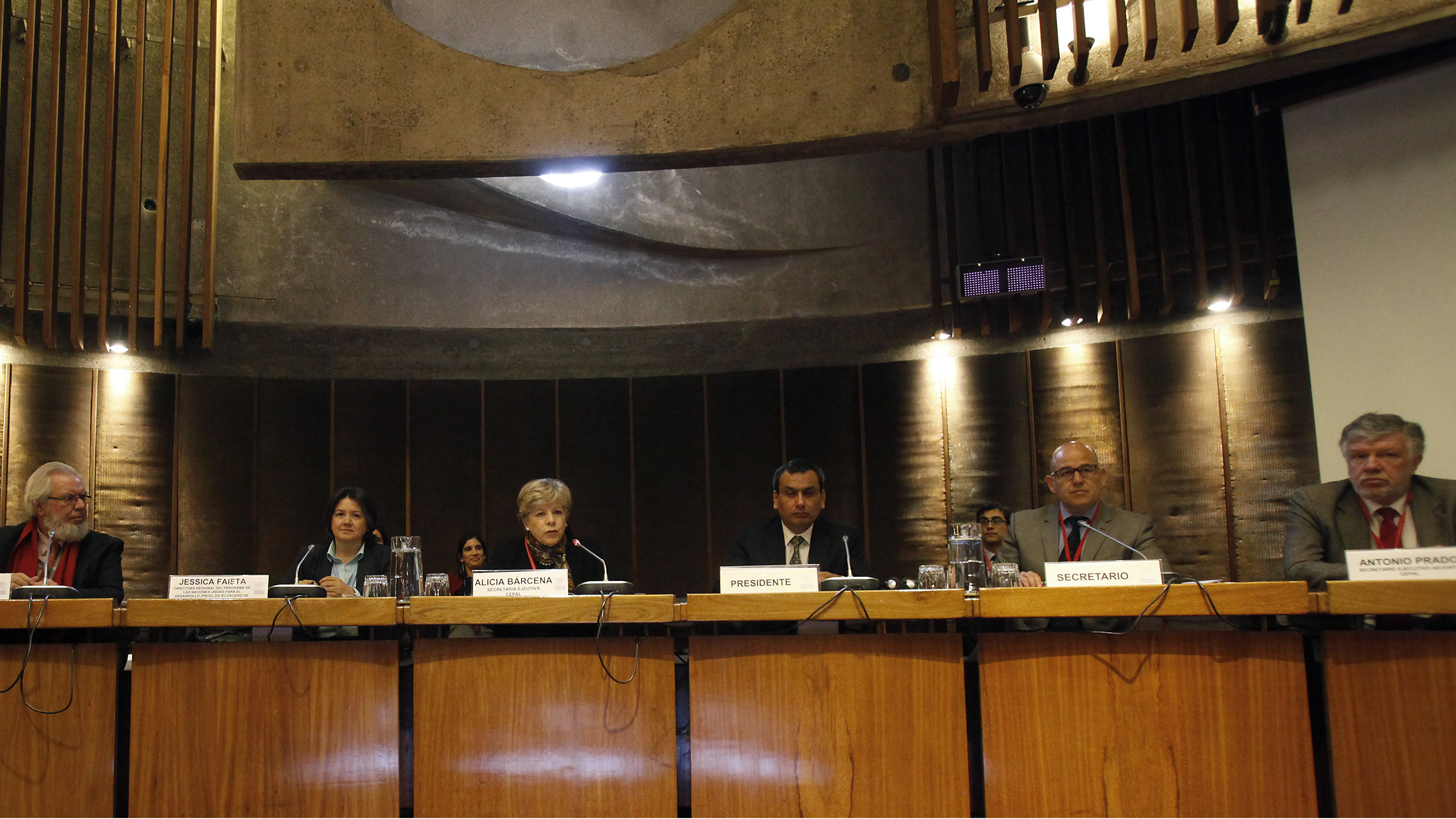ECLAC Hosts a Regional Consultation on Accountability for the Post-2015 Agenda
A strengthening of existing regional mechanisms is advocated, with a broad participation of actors to support the development agenda from 2015.

(28 August 2014) Today, representatives of the region's Member States and United Nations experts meeting at the headquarters of the Economic Commission for Latin America and the Caribbean (ECLAC) in Santiago, Chile, advocated a strengthening of existing regional mechanisms for the implementation and accountability of the post-2015 development agenda.
The ECLAC Executive Secretary, Alicia Bárcena, opened the Meeting on the challenges of monitoring and accountability for the post-2015 development agenda in Latin America and the Caribbean, which will be held on Thursday and Friday for representatives of Member States, civil society and the private sector.
The opening also featured contributions from the Regional Director of the United Nations Development Programme (UNDP), Jessica Faieta, in her capacity as Chair of the United Nations Development Group for Latin America and the Caribbean (UNDG LAC); the Secretary-General's Special Adviser on Post-2015 Development Planning, Amina Mohammed; and Luis Fernando Llanos, from Peru's Ministry of Development and Social Inclusion, in his capacity as Chair of the Thirty-fifth session of ECLAC.
According to the Executive Secretary "The development agenda should have equal rights at its heart, as well as environmental sustainability and full employment. ECLAC is reaffirming that equality is the aim, structural change is the way and policy is the means".
Alicia Bárcena underlined "We think that there are mechanisms in the region that may be useful for accountability. At ECLAC, we have the subsidiary bodies in which Member States can discuss the content and follow-up to the post-2015 agenda. We should take advantage of our region's institutional architecture as much as possible".
ECLAC's subsidiary bodies include the Statistical Conference of the Americas, the Regional Conference on Women, the Caribbean Development and Cooperation Committee, the Committee on Population and Development, the Committee of High-level Governmental Experts, the Committee on Central American Economic Cooperation and the Regional Council for Planning.
Amina Mohammed reiterated that this meeting was in response to a request made in June by UN Secretary-General, Ban Ki-moon, to the five United Nations regional commissions to organize consultations on accountability in the post-2015 agenda. This must be approved by the United Nations General Assembly, and would begin to apply following the expiry of the time period for achieving the Millennium Development Goals (MDGs).
As part of the new agenda design, the Open Working Group on Sustainable Development Goals, which was set up in January 2013 with representatives appointed by Member States, completed its work in July and put forward 17 major focal points. The content and targets will be discussed by countries in a process that will last into next year.
Jessica Faieta emphasized that the implementation of MDGs showed that: global targets do not guarantee a closing of the gaps affecting the most vulnerable population groups; there is a need to build local capacities in accordance with each society's specific needs; and development agendas should not be based on piecemeal sectorial interventions, but rather on structural and multisectoral strategies, particularly at the national level.
Amina Mohammed, who took part via video link from Nigeria, stressed the challenge of implementing accountability mechanisms to monitor the fulfilment of a non-binding agenda, as well as the relevance of having robust and reliable statistical information systems to measure progress and demonstrate the inequalities that are sometimes hidden behind averages.
Luis Fernando Llanos, Director General of Follow-up and Evaluation of the Peruvian Ministry of Development and Social Inclusion, called on countries to get involved in the planning of this process and to set feasible targets aimed at reducing such inequalities within countries.
Related link(s)
Country(ies)
- Latin America and the Caribbean
Contact
Public Information Unit
- prensa@cepal.org
- (56 2) 2210 2040